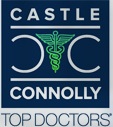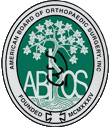
According to the American Academy of Orthopedic Surgeons, numbness, tingling and pain in the hand, an electric shock-like feeling that affects the thumb, index and long finger, and pain that travels up the arm toward the shoulder are all symptoms ofcarpal tunnel syndrome.
You can develop carpal tunnel syndrome from everyday activities such as typing, playing a musical instrument, or working with certain tools. Carpal tunnel syndrome may affect one or both hands. The symptoms are usually worse in the evening. The pain and discomfort can last months and may disrupt routine activities.
Most people with CTS are advised to start out with nonsurgical approaches to treatment such as:
- Wearing wrist splints at night. Keeping your wrist in a straight or neutral position reduces pressure on the nerve in the carpal tunnel. It may also help to wear a splint during the day when doing activities that aggravate your symptoms.
- Other nonsurgical approaches include steroid medications injected into the carpal tunnel, but these typically only provide temporary relief.
- Activity changes and nerve gliding exercises can also offer relief from the pain while allowing for time to heal.
The decision whether to have surgery is based on the severity of your symptoms—how much pain and numbness are you experiencing. In long-standing cases with constant numbness and the wasting of your thumb muscles, surgery may be recommended to prevent irreversible damage.
Signs that it is time to meet with a surgeon:
- The symptoms are so severe they restrict your normal activities.
- Your symptoms have not improved over several weeks to months of non-surgical treatment.
- You have lost your hand, thumb or finger function, which indicates your median nerve is compromised and you are at risk for median nerve damage.
If you decided upon surgery you should expect some pain, swelling, and stiffness after your procedure. Minor soreness in your palm may last for several weeks to several months. Grip and pinch strength usually returnsabout 2 to 3 months after surgery. Your doctor will talk with you about when you will be able to return to work and whether you will have any restrictions on your work activities.
Book an appointment with us for an in-depth evaluation of your carpal tunnel and to find out if you are a candidate for surgery at (541) 622-8900.
Dr. Ryan Colley attended medical school at Midwestern University Arizona College of Osteopathic Medicine. He completed residency in orthopedic surgery at Ohio University studying all fields of orthopedics including trauma, joint replacement, sports medicine, pediatrics, and hand surgery. He focuses on all aspects of upper extremity joint replacement, reconstruction, trauma, and arthroscopy. He also performs robotic assisted total knee replacement. He has authored a number of publications and book chapters. He takes a holistic approach to improve the quality of life for his patients. In his free time, Dr. Colley enjoys time with his wife and two children. They love to hike, fish, snowboard, and travel.





 Book an Appointment
Book an Appointment
 Patient Portal
Patient Portal